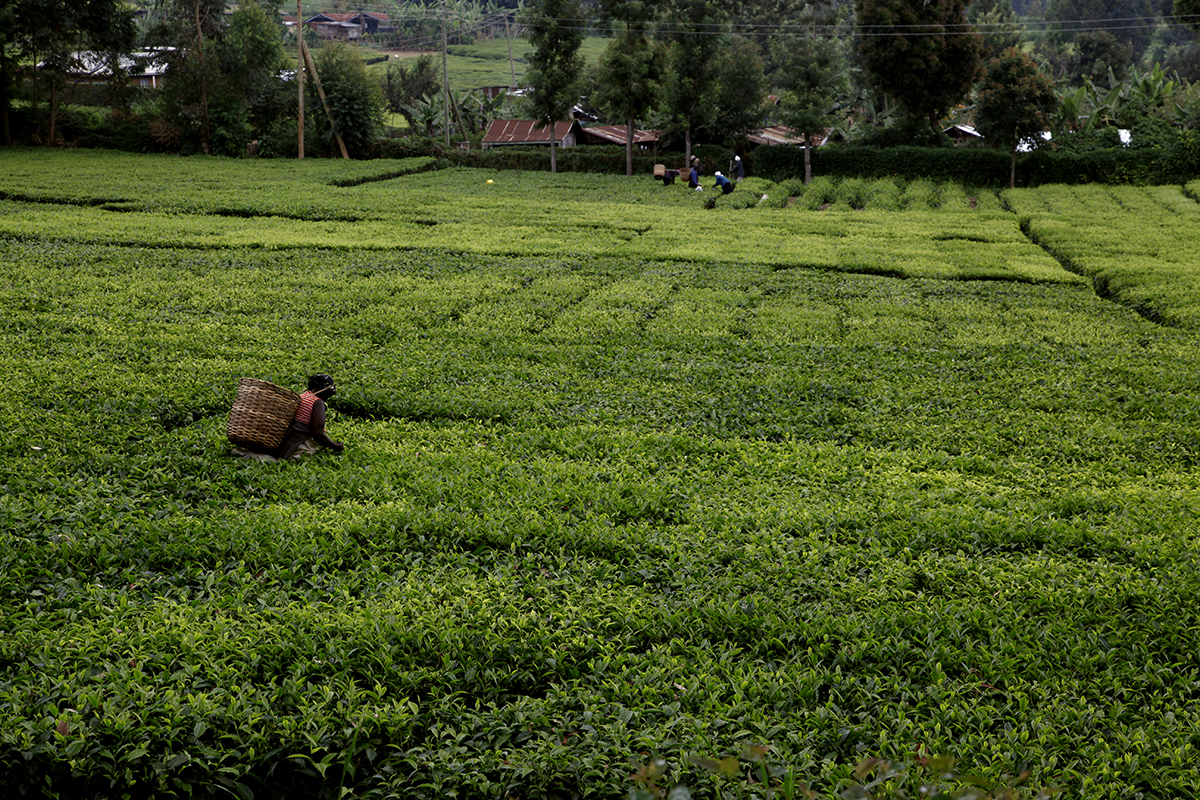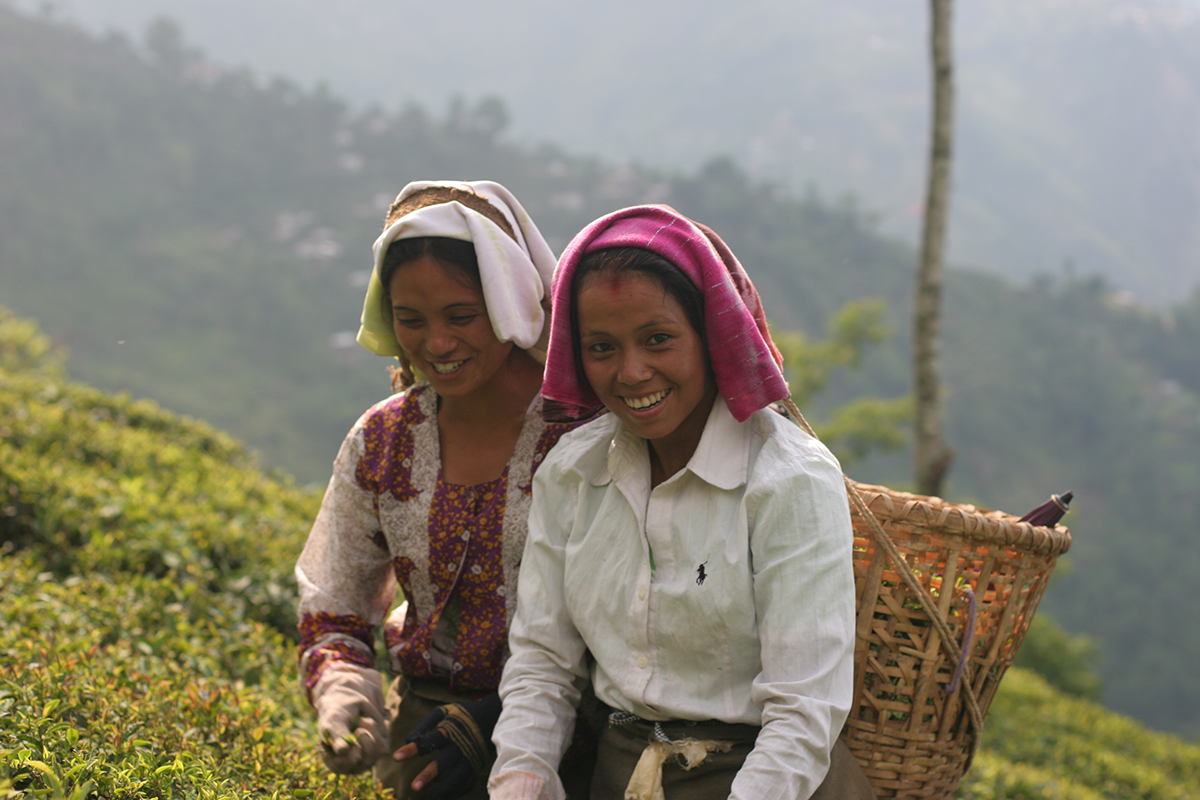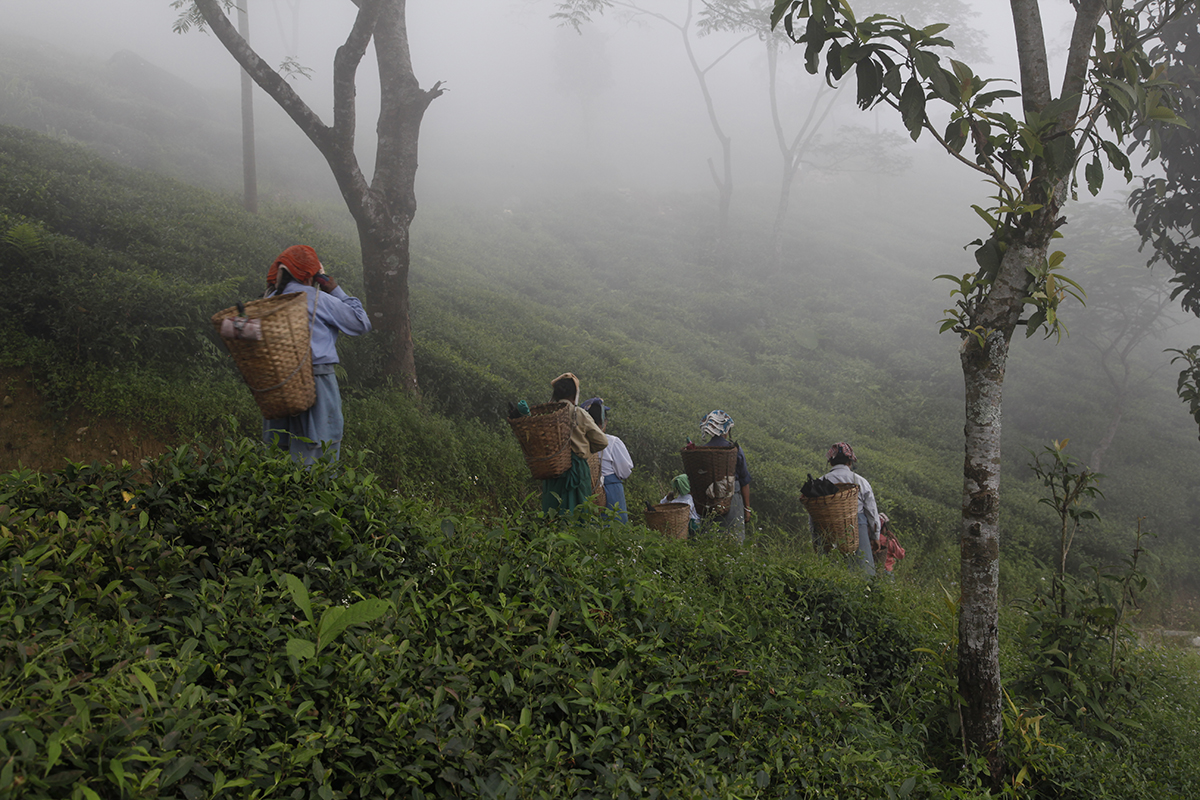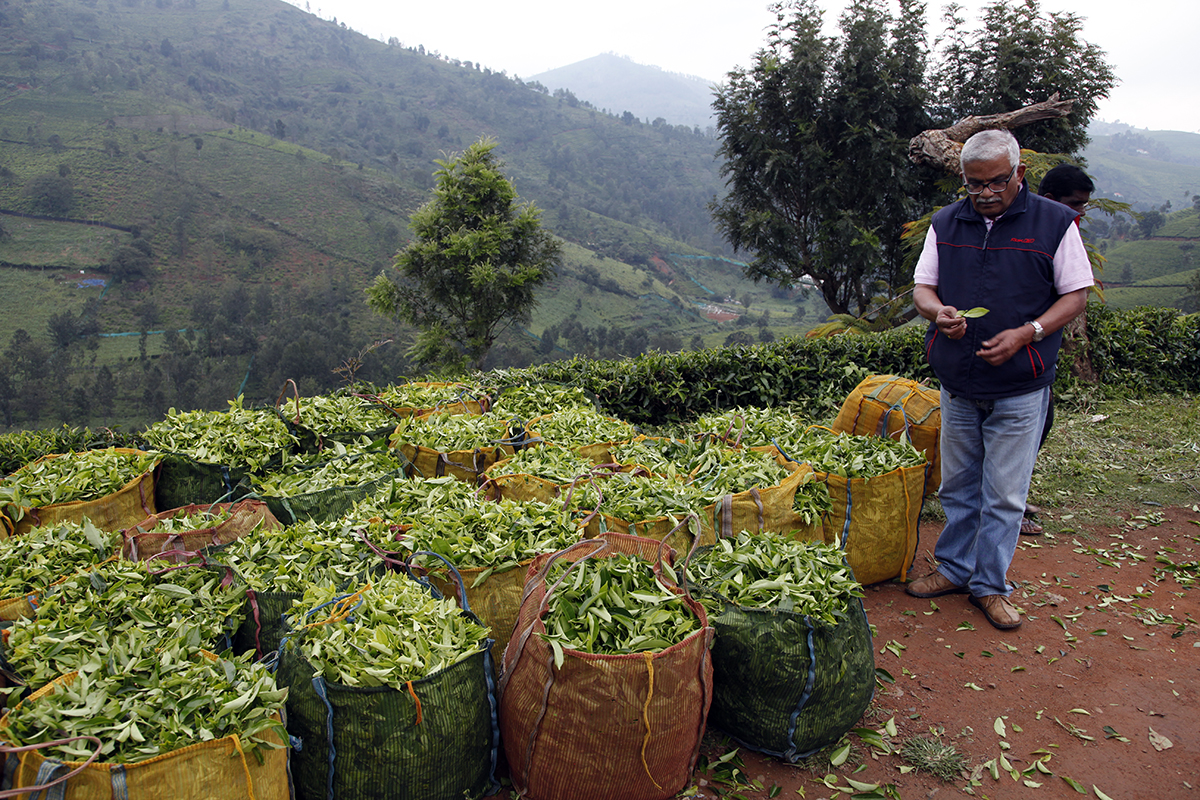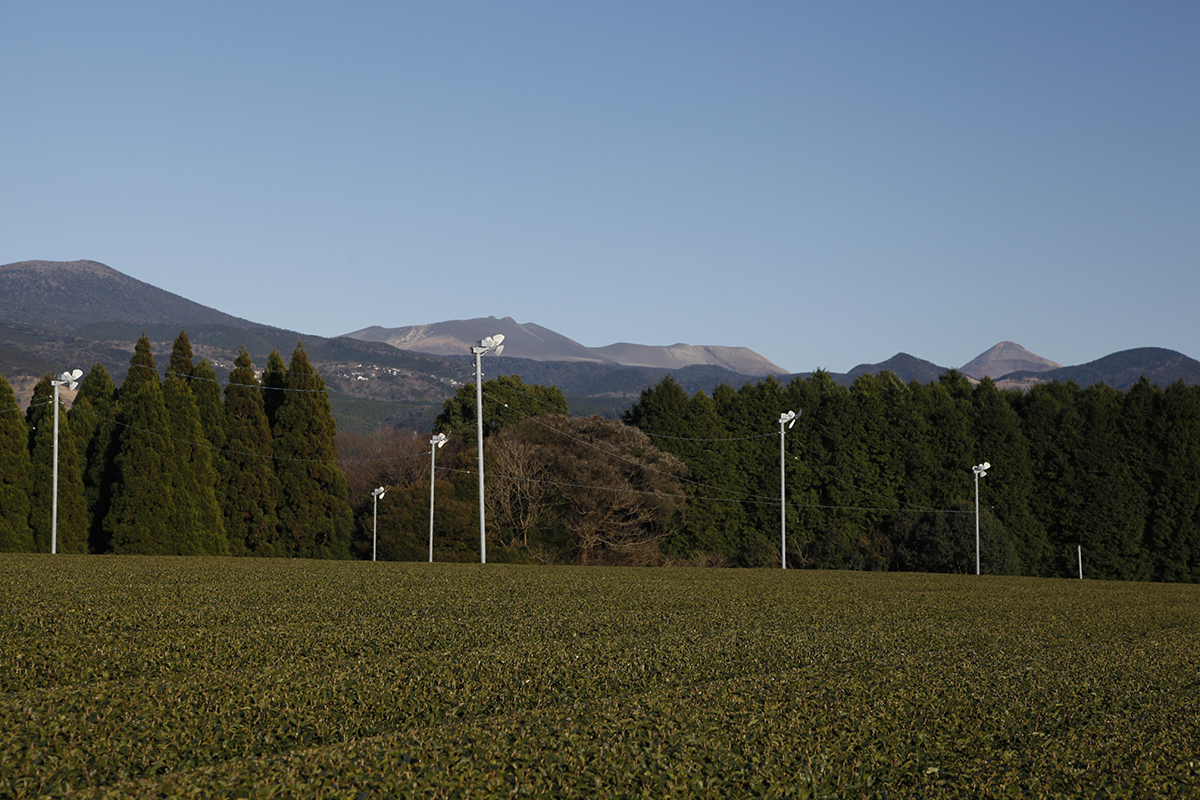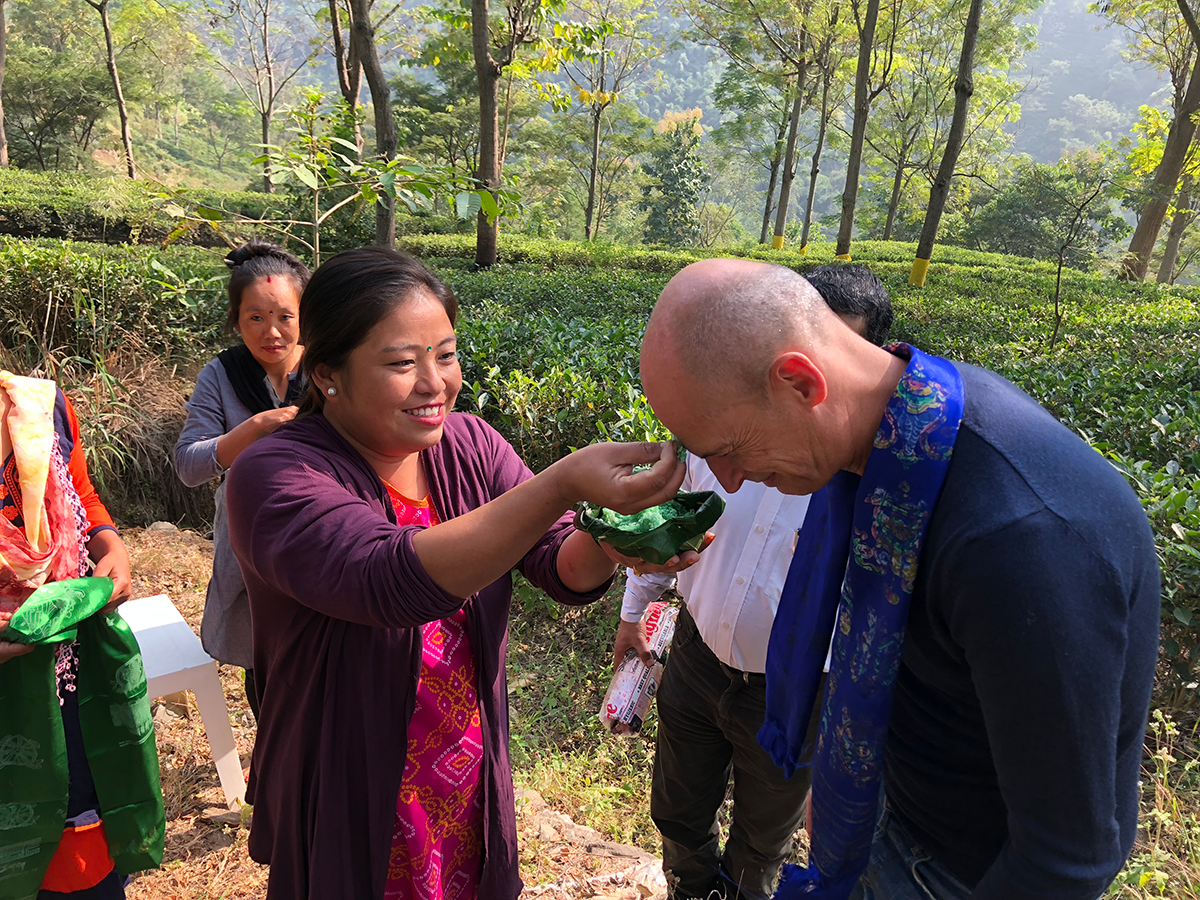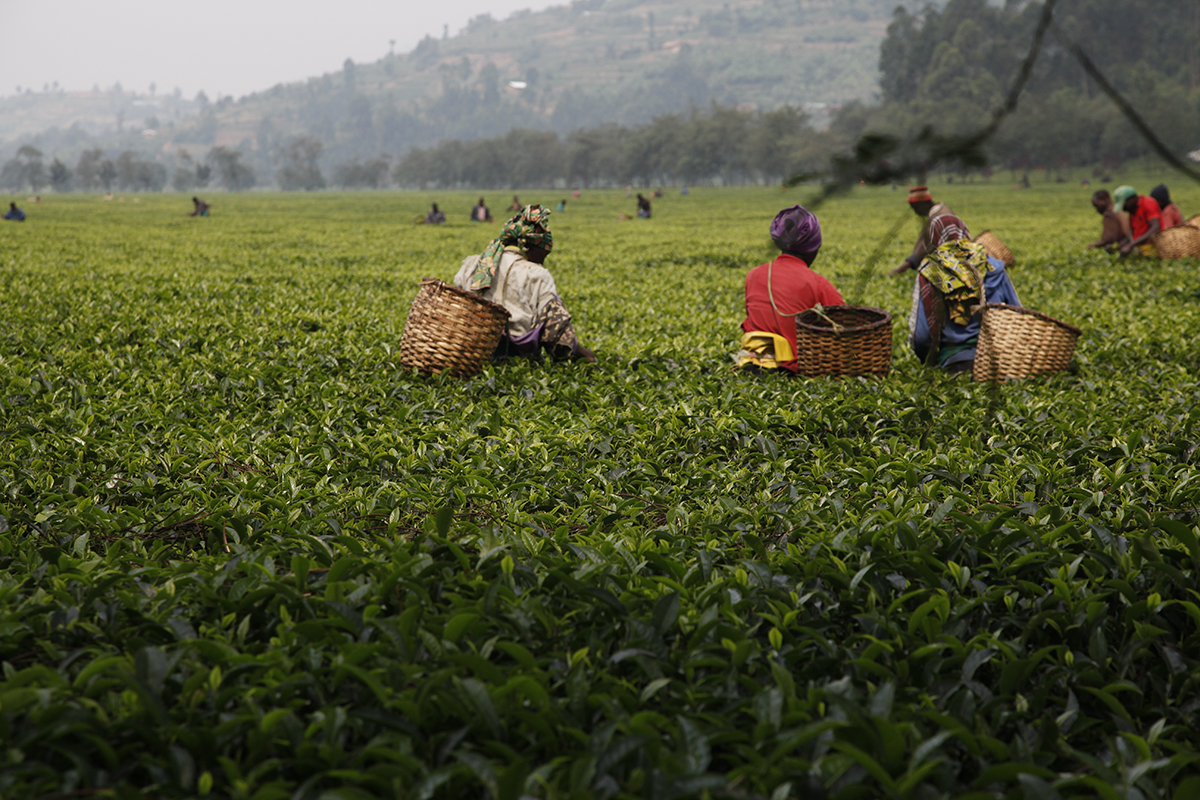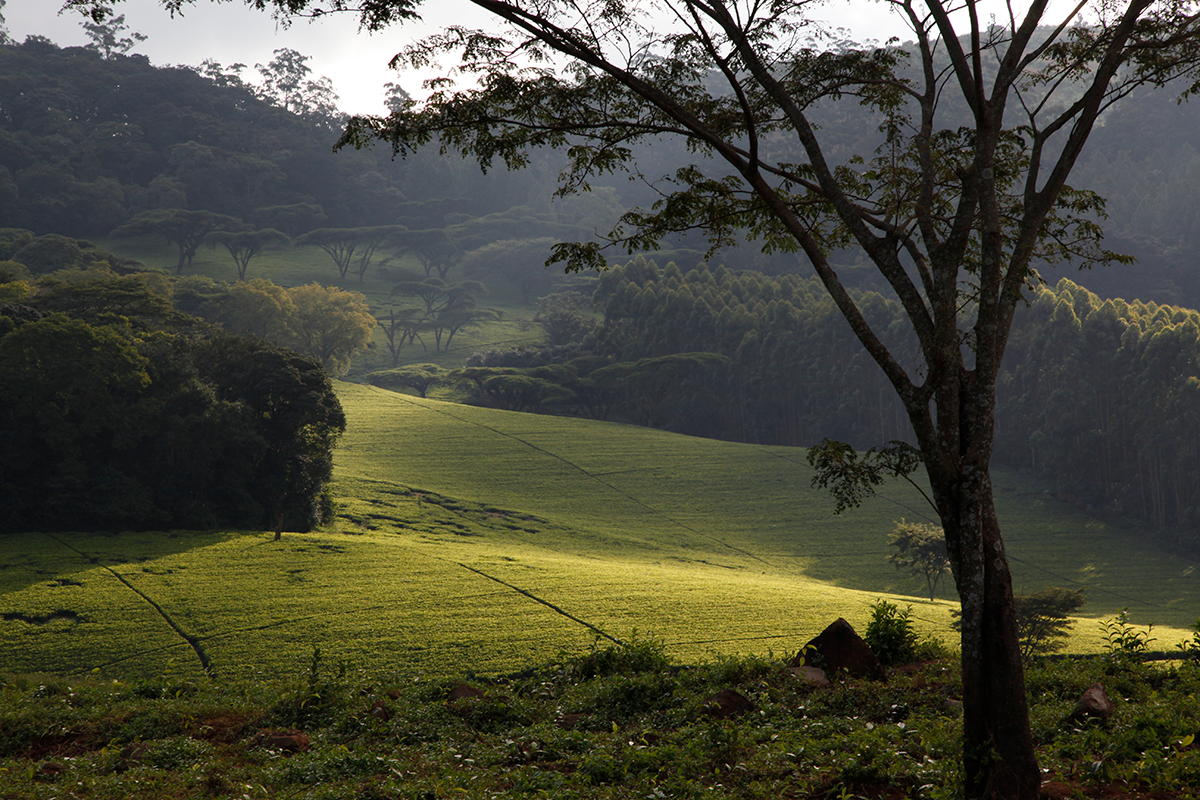It takes a lot of attention to detail to produce fine tea, harvested from this beautiful emerald expanse. Only the bud and the first two youngest leaves at the tip of the shoot must be picked. The subsequent stages in production also play an important role in quality. Let’s roll out the green carpet for everyone who helps to create such delicious teas.
Brothers and sisters
More than ten years ago, I met someone (very) famous and something he said to me changed my life. That person was Richard Gere, a man who loves Darjeeling and the Himalayas, and is a follower of Buddhism. The day I had the pleasure of meeting him, he asked me what Palais des Thés was doing “for our brothers and sisters in the Himalayas”. I was stunned when I heard that expression, “our brothers and sisters in the Himalayas”. It changed my life. Since that day, every time I see a picker, I think of his question, which caught me off guard. I think of his way of naming the people who live in those mountains, and since then, it is no longer pickers that I see, but brothers and sisters. And that changes everything.
Alex cultivates curiosity
By the time you read this, I’ll be with my friend Alex, tasting each of his teas. His Satemwa plantation in Malawi is one of the best in Africa. Not content with making tea for industrial producers, Alex set up different workshops to enable him to experiment – with success. He’s tried all types of processing methods to make semi-oxidised, green, white, fermented, smoked and sculpted teas. Curiosity doesn’t kill the cat; on the contrary, it helps us progress, and Alex is a brilliant example.
And their children after them
International Tea Day was pronounced by the United Nations to fall on 21 May each year, while other people celebrate it on 15 December. So we have a choice. As far as I’m concerned, every day is tea day. Every morning I wake up and make myself a cup of tea. I make another one in the middle of the morning, then after lunch, and again in the afternoon. It’s always the right time for a tea break as far as I’m concerned. After my evening meal, I sometimes make a small cup of dark tea before going to bed. Between each of these teapot brews, I work. That’s to say, I taste the many tea samples that come in. Dozens and dozens of teas every day, and these I prepare with a tasting set. All this makes up a full day of tea, a lifetime of tea, even.
An international tea day – why not, but for what purpose? A day of tea is good, a day of good tea is better. Good tea harvested and processed by hand. It’s beneficial to promote rare tea if we want to improve people’s lives, if we want to reinforce respectful agricultural practices over time. If we want farmers to live well, we have to buy tea from them at a higher price. It’s not a question of charity, that won’t work, it’s a matter of encouraging them to produce better quality teas. A better quality tea costs ten, twenty, sometimes a hundred times more than an industrial tea, it gives the farmers a much more substantial income, an income that allows them to live well, to stay on their land, and their children after them.
My Indian friends
The terrible situation in India due to the pandemic, which I hope will spare Nepal, reminds me – not that I need it – how dear my Indian friends are to me. There are too many to name all of them, in Darjeeling, Kolkata and elsewhere. One of them is my friend Anil Darmapalan, who I first met more than 20 years ago when he was running the Thiashola plantation. He gave me such a warm welcome, along with his wife Sharmila and all the plantation staff.
After having been an auditor for a certification organisation, and therefore particularly aware of all the issues involved with converting a conventional plantation into a biodynamic one, Anil now lives near Ooty (Tamil Nadu), surrounded by flowers. I’m thinking of Sharmila and Anil, and all my Indian friends, and hoping they stay well.
Mr Matsushita’s Shoju tea
The difference between the climate in the north and south of Japan, combined with the cultivars used in the country, some of which are earlier than others, mean the spring teas vary greatly in terms of when they become available. Traditionally, the well-known Japanese Ichibanchas are picked and processed at the start of May. But with global warming and the new cultivars being used by farmers branching out from the traditional Yabukita, some harvests are taking place earlier in the year. For example, Mr Matsushita’s Shoju, produced using an early tea cultivar grown on the island of Tanegashima, in the south of the archipelago, is already available. It has floral, vegetal and iodine notes. A foretaste of open horizons, and a pure delight.
The desire to learn, to find harmony
We live in a world where people have opinions about everything. These same people become outraged over nothing, because they are convinced that they are right, that they know better than anyone else. This is difficult for me to understand. It seems to me that too much certainty is not conducive to learning. The reason I know a bit about tea is because for many years I was convinced that I knew nothing. Accepting this ignorance, recognising that I knew very little and had so much to discover, allowed me to learn. As for being outraged about everything, this is also a world away from the way I live my life. The work of the tea sourcer consists of meeting people who think differently, who lead different lives and have other beliefs and customs. These differences are exactly what makes my job so rewarding. As my work mainly takes me to Asia, even when I encounter opposing views, the ultimate goal is to find harmony.
With Matthieu Ricard
Believe in the beauty of a world that is not only guided by profits that benefit the few to the detriment of the majority. Believe that a company can bring happiness to its employees, customers and suppliers, or in our case, farmers. Believe that a company not only can be but should be a good corporate citizen and put the general interest ahead of the individual interest. Do not make profits for their own sake, but within the framework of profitable growth that benefits everyone involved. Make reasoned, useful growth that is not achieved at the expense of the planet, growth that takes into account the short, medium and long term, growth that benefits human development.
Fortunately
Fortunately, Covid-19 doesn’t stop tea leaves from growing or the harvest from taking place. Samples are reaching us and our taste buds still function, as does our sense of smell. Several of us are able to taste the teas, taking care to protect ourselves. And so, happily, we can get on with our job of choosing the finest teas among the new arrivals. We are still able to drink the most wonderful spring teas, among others, while waiting for better days ahead. And we are able to live in harmony with nature, in harmony with those who are far away and whom we will meet again one day, when the conditions are right to travel again.
Search carefully
Tea was introduced to Malawi at end of the 19th century by Scottish missionaries. It grows in the far south of former Nyasaland, a stone’s throw from Mozambique. Like many African countries, most of Malawi’s tea is grown for the tea bag market. But it is sometimes possible to find rarer teas, if you search carefully.

